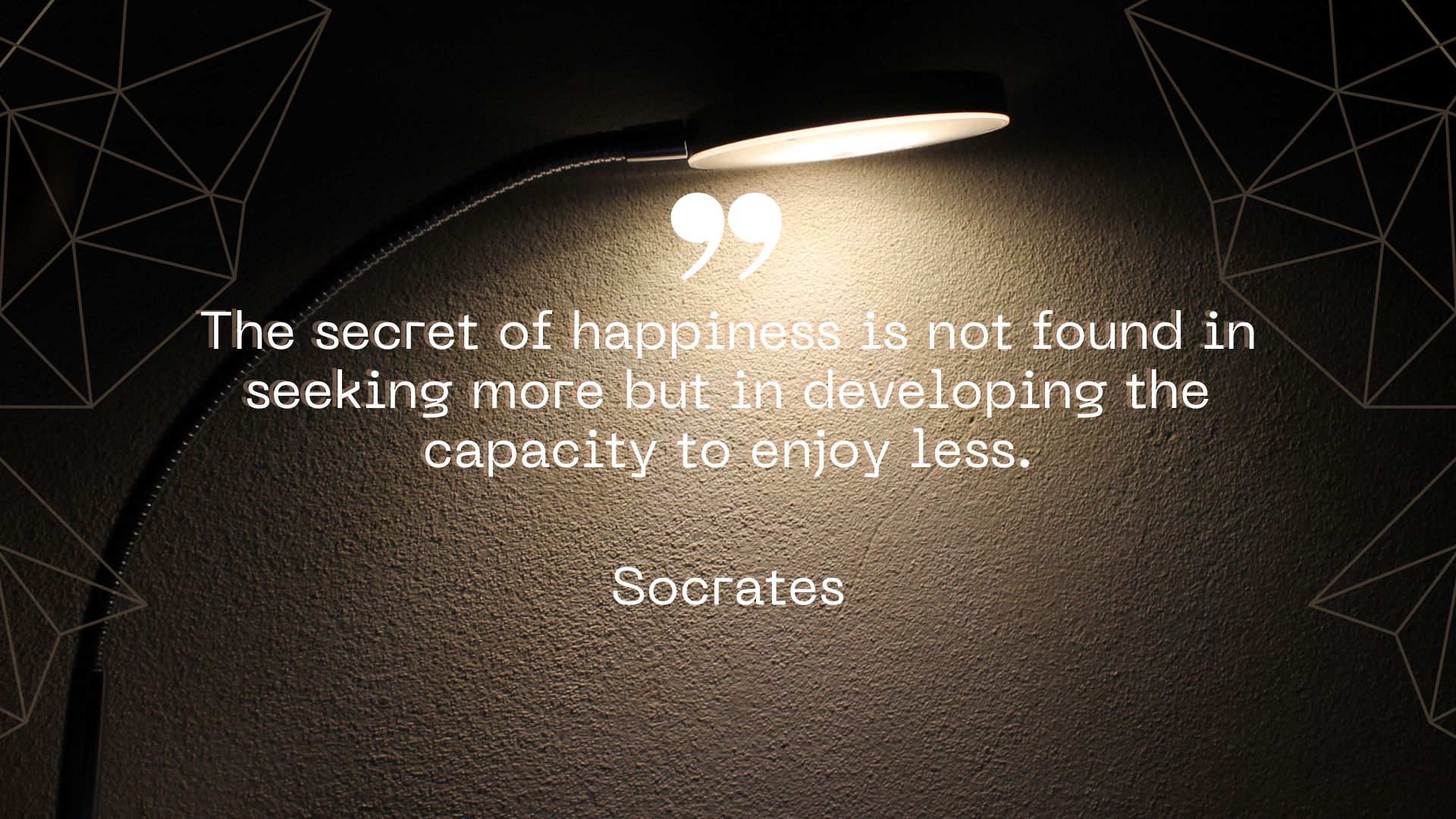The secret of happiness is not found in seeking more but in developing the capacity to enjoy less.
Socrates___
Socrates on Happiness
This is a quote. It suggests that happiness is not necessarily tied to accumulating more material possessions or experiences, but rather to cultivating the ability to appreciate and be content with what one has. This idea is based on the principle that true happiness comes from within and is not dependent on external circumstances.
There is some research to support the idea that a focus on material possessions and external goals is not necessarily correlated with increased happiness. Instead, factors such as strong social connections, a sense of purpose and meaning in life, and the ability to cope with stress and setbacks are often more important in determining overall well-being and happiness.
Developing the capacity to enjoy less may involve practicing gratitude, setting and achieving meaningful goals, and cultivating a sense of perspective and balance in one’s life. It may also involve learning to find joy and fulfillment in simple pleasures and everyday moments, rather than constantly striving for more.
True happiness
True happiness is a state of contentment, joy, and well-being that is characterized by positive emotions and a sense of fulfillment. It is a subjective experience that can vary from person to person and is influenced by individual circumstances, expectations, and values.
True happiness is often seen as a holistic and multifaceted concept that encompasses physical, emotional, and psychological well-being. It may involve feeling satisfied and content with one’s life, experiencing positive emotions and a sense of purpose, and having healthy and fulfilling relationships with others.
True happiness is not necessarily tied to accumulating material possessions or external goals, but rather to cultivating inner well-being and a sense of meaning and purpose in life. It may involve developing positive character traits such as gratitude, kindness, and resilience, as well as finding ways to contribute to the well-being of others.
True happiness is often seen as an important aspect of overall well-being and is often pursued as a fundamental human goal.
Gratitude, kindness, and resilience
Gratitude, kindness, and resilience are all character traits that are often associated with happiness and well-being.
Gratitude is the feeling of appreciation and thankfulness for the good things in one’s life. It is often linked to increased levels of happiness and well-being, as it can help people to focus on the positive aspects of their lives and cultivate a sense of contentment and fulfillment.
Kindness is the quality of being considerate, caring, and compassionate towards others. It is often associated with feelings of happiness and satisfaction, as well as with positive relationships with others.
Resilience is the ability to bounce back from adversity or setbacks and to handle difficult situations with strength and determination. It is an important quality that can help people to cope with challenges and stress, and is often linked to increased levels of happiness and well-being.
Developing gratitude, kindness, and resilience can involve a variety of practices, such as expressing gratitude, volunteering and helping others, and setting and achieving meaningful goals. These traits can help individuals to cultivate inner well-being and to find fulfillment and happiness in their lives.




